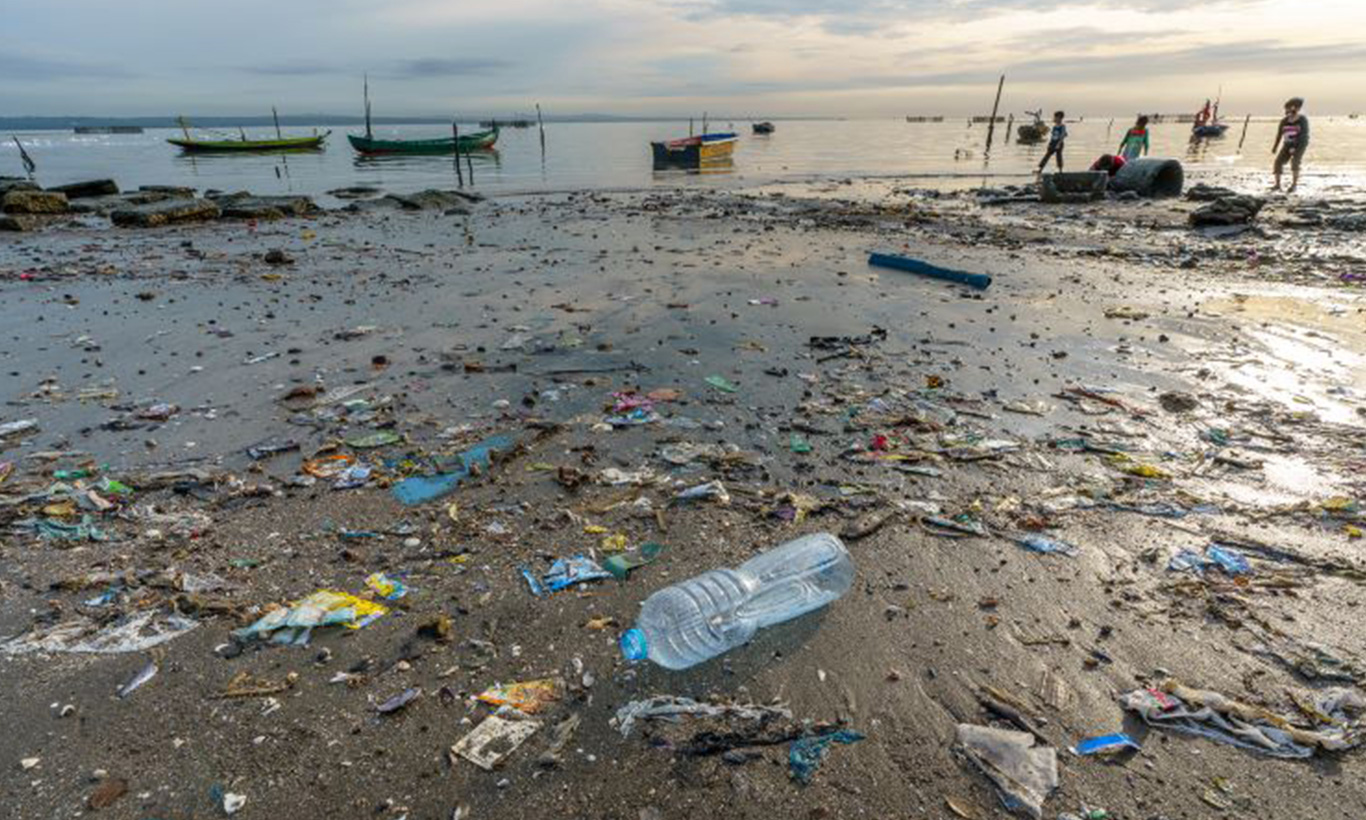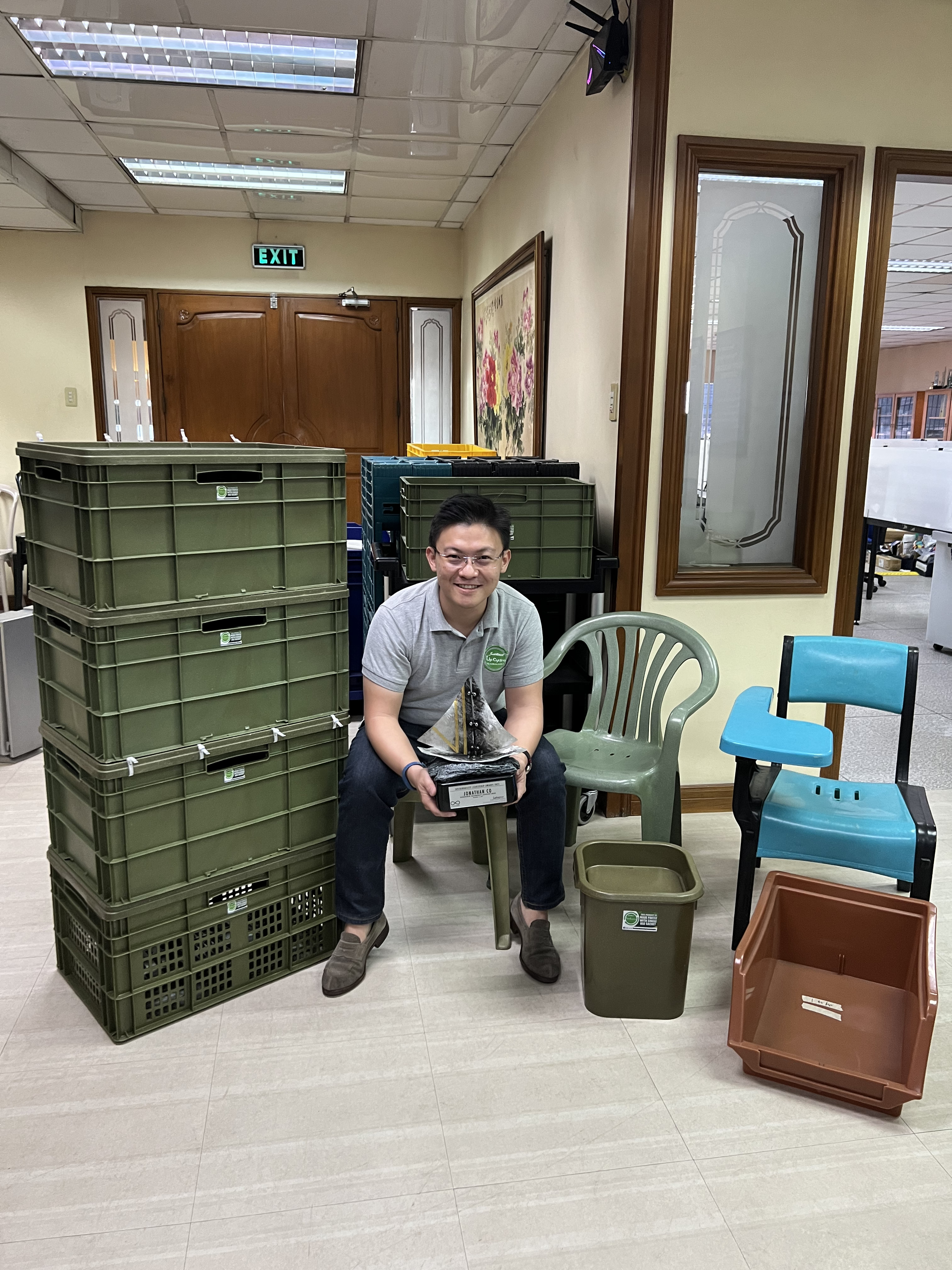

24-25 February 2021: Indonesia's Coordinating Ministry for Maritime Affairs and Investment (CMMIA) and Japan's Ministry of the Environment (MOEJ) held an online workshop on Strengthening Capacity for Marine Debris Reduction and Waste Management in ASEAN Region through Knowledge Sharing on Marine Litter.
The workshop aimed to share information on the waste management and reduction of marine plastic litter efforts of each country in the ASEAN+3 region, with reference to national and regional frameworks such as the ASEAN Framework on Action on Marine Debris, the Osaka Blue Ocean Vision, and the G20 Implementation Framework for Actions on Marine Plastic Litter.
Mr Tomohiro Kondo, MOEJ Vice-Minister, expressed his commitment to cooperation among ASEAN countries on the marine plastic issue in his welcoming remarks on the first day of the workshop. He said knowledge obtained from the webinar would be shared among partners and disseminated through the Regional Knowledge Centre for Marine Plastic Debris (the Centre).
The first session discussed national action plan best practices and the output of the Japan-ASEAN Integrated Fund (JAIF) Phase 1. Mr Tatsuya Abe, of the (MOEJ), shared the Japanese government's action plan, which consists of eight areas, and highlighted two MOEJ activities: the issuance of guidelines for harmonising ocean surface microplastic monitoring methods, and a plastic smart campaign.
Mr Satoshi Sasakura, from IDEA Consultants, introduced the results of Phase I of the JAIF project and proposals for Phase II. Phase I conducted a survey on national action plan development and identified the gaps, while Phase II will design national action plans for countries in need.
Mr Rofi Alhanif, from CMMIA, then highlighted achievements by the Indonesian government, which set a target to reduce up to 70% of plastic pollution by 2025. The target consists of five main strategies: stakeholder awareness, land-based waste management, coastal and sea-based waste management, institutional reinforcement, and research and development. From 2018 to 2020, Indonesia successfully reduced plastic pollution by 15.3%.
Mr Eddy Mazuaansyah continued the session by delivering a presentation on Malaysia's national strategy to reduce marine plastic pollution, committing to reduce marine plastic pollution by 85% by 2030. Five strategies are used to achieve the target: policy development, technology development by business actors, monitoring and data collection, public awareness, and inclusivity.
Ms Wassana Jangprajak, from Thailand's Pollution Control Department, closed the session saying her country has developed a roadmap on plastic waste management for 2018-2030.
The second session discussed technology, innovation, and actions for the prevention and management of marine plastic litter. Mr Cheang Kok Chung, from the ASEAN Working Group on Chemicals and Waste, spoke on transboundary plastic waste trade control as one of the programmes under the working group. He also emphasised the importance of the Basel Convention for better plastic waste management.
Mr Noy Check, from Battambang City, Cambodia, continued the session with a presentation on pilot projects for waste separation and waste collection from rivers in the city. The third speaker was Ms Tuti Hadiputranto from Indonesia's National Plastic Action Plan (NPAP), who said that around 61% percent of Indonesia’s waste is not collected. As a result, NPAP and its 60 members will collaborate to support government efforts to reduce plastic pollution.
Mr Bing Chomprasob, from the Alliance to End Plastic Waste (AEPW), introduced the partnerships between his alliance and governments and other organisations. The AEPW has four pillars of activity: infrastructure, innovation, education, and clean-up.
Mr Akihito Yamashita, from Japan's Ministry of Economy, Trade and Industry (METI), spoke on collaboration between the Japanese government and the industrial sector, focusing on marine biodegradable plastic.
Ms Yuko Koshiishi, from Suntory Holdings Limited, then spoke on the partnership between Suntory and the Japan Clean Ocean Material Alliance (CLOMA), under which CLOMA has key actions, including reduction of plastics, material recycling, chemical recycling, and the biodegradability of paper and cellulose materials.
The third session discussed scientific approaches for managing leakages and monitoring marine plastics. Mr Michikazu Kojima, from ERIA, spoke on countermeasures to combat marine plastic debris from upstream to downstream. To effectively implement such countermeasures, it is important to fill current scientific gaps.
Mrs Janet Salem, from the United Nations Economic and Social Commission for Asia and the Pacific (ESCAP), then demonstrated early results from the Closing the Loop project, which involved digital mapping tools in monitoring hotspots.
Mr Fujio Kojima, from Pirika Inc, gave a presentation on Pirika's initiatives through its anti-litter mobile-based app, an urban litter survey utilising artificial intelligence, and low-cost microplastic surveys.
Mr Muhammad Reza Cordova, from the Indonesian Institute of Sciences (LIPI), said major challenges have been discovered in ASEAN countries, such as limited capacity and lack of harmonisation of methods. To address these challenges, a regional platform is needed.
Mr Dida Migfar Ridha, from Indonesia's Ministry for Environment and Forestry, then introduced a knowledge management platform developed by the Regional Capacity Centre for Clean Seas (RC3S).
Mr Kojima also emphasised the necessity of utilising the Centre to share current understanding and stimulate future studies.
In line with the necessity to undertake collaborative efforts discussed in Session 3, Session 4 elaborated on how to effectively mobilise on-going initiatives by bi-lateral and multi-lateral cooperation agencies for the science, technology, and innovation needs of ASEAN countries. The status of international cooperation on marine plastic debris in the region was shared by international organisations including the World Bank, the Asian Development Bank (ADB), the Japan International Cooperation Agency (JICA), and Deutsche Gesellschaft für Internationale Zusammenarbeit (GIZ), as well as opportunities to strengthen such cooperation.
24-25 February 2021: Indonesia's Coordinating Ministry for Maritime Affairs and Investment (CMMIA) and Japan's Ministry of the Environment (MOEJ) held an online workshop on Strengthening Capacity for Marine Debris Reduction and Waste Management in ASEAN Region through Knowledge Sharing on Marine Litter.
The workshop aimed to share information on the waste management and reduction of marine plastic litter efforts of each country in the ASEAN+3 region, with reference to national and regional frameworks such as the ASEAN Framework on Action on Marine Debris, the Osaka Blue Ocean Vision, and the G20 Implementation Framework for Actions on Marine Plastic Litter.
Mr Tomohiro Kondo, MOEJ Vice-Minister, expressed his commitment to cooperation among ASEAN countries on the marine plastic issue in his welcoming remarks on the first day of the workshop. He said knowledge obtained from the webinar would be shared among partners and disseminated through the Regional Knowledge Centre for Marine Plastic Debris (the Centre).
The first session discussed national action plan best practices and the output of the Japan-ASEAN Integrated Fund (JAIF) Phase 1. Mr Tatsuya Abe, of the (MOEJ), shared the Japanese government's action plan, which consists of eight areas, and highlighted two MOEJ activities: the issuance of guidelines for harmonising ocean surface microplastic monitoring methods, and a plastic smart campaign.
Mr Satoshi Sasakura, from IDEA Consultants, introduced the results of Phase I of the JAIF project and proposals for Phase II. Phase I conducted a survey on national action plan development and identified the gaps, while Phase II will design national action plans for countries in need.
Mr Rofi Alhanif, from CMMIA, then highlighted achievements by the Indonesian government, which set a target to reduce up to 70% of plastic pollution by 2025. The target consists of five main strategies: stakeholder awareness, land-based waste management, coastal and sea-based waste management, institutional reinforcement, and research and development. From 2018 to 2020, Indonesia successfully reduced plastic pollution by 15.3%.
Mr Eddy Mazuaansyah continued the session by delivering a presentation on Malaysia's national strategy to reduce marine plastic pollution, committing to reduce marine plastic pollution by 85% by 2030. Five strategies are used to achieve the target: policy development, technology development by business actors, monitoring and data collection, public awareness, and inclusivity.
Ms Wassana Jangprajak, from Thailand's Pollution Control Department, closed the session saying her country has developed a roadmap on plastic waste management for 2018-2030.
The second session discussed technology, innovation, and actions for the prevention and management of marine plastic litter. Mr Cheang Kok Chung, from the ASEAN Working Group on Chemicals and Waste, spoke on transboundary plastic waste trade control as one of the programmes under the working group. He also emphasised the importance of the Basel Convention for better plastic waste management.
Mr Noy Check, from Battambang City, Cambodia, continued the session with a presentation on pilot projects for waste separation and waste collection from rivers in the city. The third speaker was Ms Tuti Hadiputranto from Indonesia's National Plastic Action Plan (NPAP), who said that around 61% percent of Indonesia’s waste is not collected. As a result, NPAP and its 60 members will collaborate to support government efforts to reduce plastic pollution.
Mr Bing Chomprasob, from the Alliance to End Plastic Waste (AEPW), introduced the partnerships between his alliance and governments and other organisations. The AEPW has four pillars of activity: infrastructure, innovation, education, and clean-up.
Mr Akihito Yamashita, from Japan's Ministry of Economy, Trade and Industry (METI), spoke on collaboration between the Japanese government and the industrial sector, focusing on marine biodegradable plastic.
Ms Yuko Koshiishi, from Suntory Holdings Limited, then spoke on the partnership between Suntory and the Japan Clean Ocean Material Alliance (CLOMA), under which CLOMA has key actions, including reduction of plastics, material recycling, chemical recycling, and the biodegradability of paper and cellulose materials.
The third session discussed scientific approaches for managing leakages and monitoring marine plastics. Mr Michikazu Kojima, from ERIA, spoke on countermeasures to combat marine plastic debris from upstream to downstream. To effectively implement such countermeasures, it is important to fill current scientific gaps.
Mrs Janet Salem, from the United Nations Economic and Social Commission for Asia and the Pacific (ESCAP), then demonstrated early results from the Closing the Loop project, which involved digital mapping tools in monitoring hotspots.
Mr Fujio Kojima, from Pirika Inc, gave a presentation on Pirika's initiatives through its anti-litter mobile-based app, an urban litter survey utilising artificial intelligence, and low-cost microplastic surveys.
Mr Muhammad Reza Cordova, from the Indonesian Institute of Sciences (LIPI), said major challenges have been discovered in ASEAN countries, such as limited capacity and lack of harmonisation of methods. To address these challenges, a regional platform is needed.
Mr Dida Migfar Ridha, from Indonesia's Ministry for Environment and Forestry, then introduced a knowledge management platform developed by the Regional Capacity Centre for Clean Seas (RC3S).
Mr Kojima also emphasised the necessity of utilising the Centre to share current understanding and stimulate future studies.
In line with the necessity to undertake collaborative efforts discussed in Session 3, Session 4 elaborated on how to effectively mobilise on-going initiatives by bi-lateral and multi-lateral cooperation agencies for the science, technology, and innovation needs of ASEAN countries. The status of international cooperation on marine plastic debris in the region was shared by international organisations including the World Bank, the Asian Development Bank (ADB), the Japan International Cooperation Agency (JICA), and Deutsche Gesellschaft für Internationale Zusammenarbeit (GIZ), as well as opportunities to strengthen such cooperation.

Research Associate


